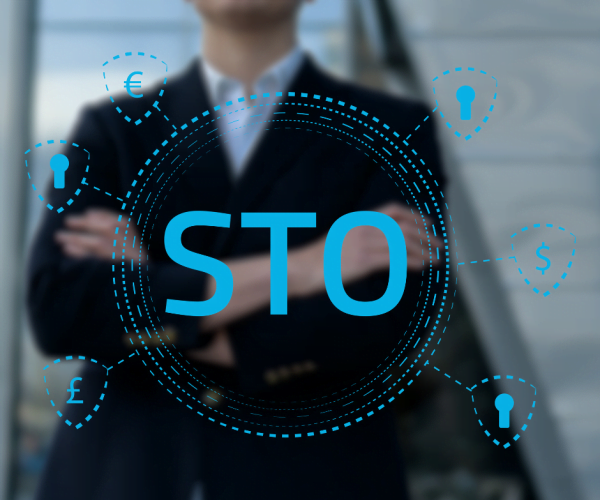Introduction
If you are interested in cryptocurrencies, you may have heard about Security Token Offerings (STOs), a new type of fundraising that is gaining popularity within the crypto space. But what is STO in cryptocurrency, and why is it important?
STO is an abbreviation for Security Token Offering. It is a fundraising mechanism that allows companies to raise capital by selling digital securities or tokens to investors. STOs are different from Initial Coin Offerings (ICOs) in that they are subject to regulatory oversight and compliance requirements.
STOs have gained popularity in recent years as a way for companies to raise funds while also providing investors with a new avenue to invest in real-world assets. Investing in STOs can offer potential benefits, such as dividend distributions and the opportunity to raise funds for projects. However, it is important to be aware of the risks associated with STOs, including potential fraudulent activities.
Key Takeaways
- STO stands for Security Token Offering, a fundraising mechanism that allows companies to sell digital securities or tokens to investors.
- STOs are different from ICOs in that they are subject to regulatory oversight and compliance requirements.
- Investing in STOs can offer potential benefits, but it is important to be aware of the risks associated with them.
What is STO and How Does it Work?
Security Token Offerings (STOs) are a type of fundraising mechanism that uses blockchain technology to issue and trade digital securities or tokens. A security token represents ownership of an asset, such as real estate or shares of a company, and provides certain rights and benefits, such as profit sharing or voting rights.

In an STO, digital securities or tokens are issued on a blockchain network in compliance with regulatory and legal requirements. These tokens are programmable, which means that they can be created to represent different types of assets with varying characteristics and rights.
The process of issuing security tokens involves the use of smart contracts, which are self-executing agreements that enforce the terms and conditions of the offering. Smart contracts automate the issuance, distribution, and management of security tokens, ensuring transparency, efficiency, and security.
| SEO relevant keywords | Explanation |
|---|---|
| security tokens | Tokens that represent ownership of an asset and provide certain rights and benefits |
| blockchain | A decentralized digital ledger that records transactions and stores data in a secure and immutable way |
| compliance | The adherence to regulatory and legal requirements for the issuance and trading of security tokens |
| digital asset | An asset that exists in digital format, such as cryptocurrency, security tokens, or digital art |
| smart contract | A self-executing agreement that enforces the terms and conditions of an STO and ensures transparency, efficiency, and security |
The use of blockchain technology and smart contracts in STOs offers several advantages, such as lower costs, faster transactions, increased transparency, and global accessibility. Additionally, the tokenization of assets allows for fractional ownership, which opens up investment opportunities to a wider pool of investors.
However, the issuance and trading of security tokens are subject to regulatory and legal requirements, such as Anti-Money Laundering (AML) and Know Your Customer (KYC) procedures, as well as compliance with securities laws. Failure to comply with these requirements can result in penalties, fines, and legal actions.
Despite the regulatory challenges, STOs represent a promising development in the digital asset landscape, offering new possibilities for fundraising and investment opportunities backed by real-world assets. In the next section, we will explore the differences between STOs and Initial Coin Offerings (ICOs), and why STOs are considered to be a more regulated and compliant form of fundraising.
How STO Differs from ICO: Understanding the Key Differences
When it comes to investing in cryptocurrency, you may have heard about the term Initial Coin Offering (ICO). While ICOs were a popular fundraising method in the early days of cryptocurrency, Security Token Offerings (STOs) have emerged as a more regulated and compliant alternative.

Unlike ICOs, STOs involve the tokenization of traditional securities, meaning that they are supported by assets such as real estate or stocks. This gives STOs a tangible value that ICOs lack. Additionally, STOs are subject to regulatory oversight, making them a safer investment option.
Another key difference between STOs and ICOs is the potential for market liquidity. STOs are often designed to be traded on stock exchanges, which means that they can be bought and sold more easily than ICO tokens. This provides greater flexibility for investors and can increase the liquidity of STOs.
Tokenization is a central concept in STOs. By representing traditional securities as digital tokens, STOs offer greater accessibility and efficiency in transactions. Tokenization ensures that ownership of the asset is recorded on the blockchain, providing greater security and transparency.
Overall, STOs represent a significant shift in the cryptocurrency world, offering a more compliant and secure investment option compared to ICOs. As more companies and investors recognize the benefits of STOs, we can expect to see a greater shift towards tokenization and the creation of more tokenized securities for the benefit of investors, companies, and markets alike.
The Benefits and Risks of Investing in STOs
If you’re considering investing in Security Token Offerings (STOs), it’s important to weigh the potential benefits against the risks involved. Here’s what you need to know to make an informed decision:

The Benefits
One of the main advantages of investing in STOs is the ability to invest in real-world assets, such as real estate, art, or commodities. This provides investors with tangible assets that can potentially appreciate over time, unlike many Initial Coin Offerings (ICOs) that are purely speculative.
Additionally, investors in STOs may have the opportunity to receive dividend distributions, similar to traditional stocks. This can provide an ongoing stream of income, especially if the underlying asset is profitable.
STOs also provide new avenues for companies and startups to raise funds. By issuing security tokens, they can reach a wider range of investors while still complying with legal and regulatory requirements. This can benefit both the company and the investor, potentially creating a win-win scenario.
The Risks
However, as with any investment, there are risks involved. One of the main concerns with STOs is the potential for fraudulent activities. While regulatory requirements are in place to prevent scams, there are still instances of fraudulent projects and schemes. It’s important to thoroughly research any STO opportunity before investing.
Another risk to consider is the importance of Anti-Money Laundering (AML) and Know Your Customer (KYC) procedures. These measures help to prevent money laundering and terrorist financing, but they can also limit the liquidity of an STO if not properly implemented.
Overall, STOs offer a regulated and compliant option for investors seeking exposure to real-world assets in the cryptocurrency market. However, it’s important to carefully weigh the potential benefits against the risks involved and conduct thorough due diligence before investing.
The Role of Regulatory Bodies in STOs
When it comes to Security Token Offerings (STOs), regulatory bodies like the Securities and Exchange Commission (SEC) play a crucial role in overseeing the issuance and trading of security tokens. The purpose of these regulatory bodies is to ensure that STOs are compliant with existing financial regulations and that investors are protected from fraudulent or illegal activities.

One of the key aspects of regulatory oversight is jurisdiction. Depending on where an STO is being issued, different regulations may apply. It’s important for both issuers and investors to be aware of the jurisdictional requirements for STOs to avoid any legal complications.
Regulatory bodies also play a role in determining what qualifies as a security, which has significant implications for STOs. The SEC, for example, has classified certain tokens as securities, meaning they must comply with securities laws and regulations. Understanding the difference between securities and utilities tokens is important for issuers considering an STO.
Overall, regulatory bodies are essential in ensuring that STOs are conducted in a compliant and regulated manner. While this may limit the scope of some STOs, it also provides investors with greater protection and transparency. In many ways, STOs can be seen as a more legitimate alternative to traditional Initial Public Offerings (IPOs).
The Future of STOs in the Crypto World
As the world of cryptocurrency continues to evolve, Security Token Offerings (STOs) are gaining momentum as a regulated and compliant option for investors. The emergence of specialized STO platforms is opening new possibilities for fundraising and liquidity, with blockchain technology playing a significant role in facilitating STOs.

The Rise of STO Platforms
One of the most significant developments in the STO world is the emergence of dedicated platforms designed to make the STO process more accessible and efficient. These platforms are regulated, compliant, and offer a range of services to issuers and investors alike.
By leveraging the power of blockchain technology, STO platforms can provide a secure and transparent way for companies to raise funds while enabling investors to trade their tokens on secondary markets. This creates a new level of liquidity for STOs and can help drive investor confidence in the space.
Blockchain Technology and STOs
Blockchain technology is a key enabler of STOs, providing the necessary infrastructure for the issuance, trading, and management of digital securities. By using blockchain technology, STOs can increase efficiency, reduce costs, and create a tamper-proof record of ownership.
Blockchain technology also enables STOs to tokenize real-world assets, allowing investors to gain exposure to a variety of different asset classes. This could include everything from real estate and commodities to works of art and collectibles.
New Fundraising and Investment Opportunities
STOs provide a new avenue for companies to raise funds, with the potential to offer investors a return on their investment in the form of dividend distributions. This has the potential to appeal to a broader range of investors than traditional fundraising methods.
Investors, on the other hand, gain access to a wide range of investment opportunities backed by real-world assets. This can provide a more stable investment option than some of the more speculative areas of the cryptocurrency market.
The Importance of Compliance
Despite their potential benefits, STOs are subject to regulatory frameworks, and compliance is crucial for the sustainable growth of the sector. Companies issuing STOs must comply with Anti-Money Laundering (AML) and Know Your Customer (KYC) procedures, as well as regulatory requirements for securities offerings.
Investors should also be aware of the potential risks associated with STOs, such as fraudulent activities. Conducting thorough due diligence and staying informed about regulatory requirements is essential for successful and responsible investment in STOs.
Conclusion
As the crypto market continues to evolve, Security Token Offerings (STOs) represent an exciting development, providing a regulated and compliant option for investors seeking exposure to digital assets. With the emergence of dedicated STO platforms and the use of blockchain technology, STOs are opening up new possibilities for fundraising and investment opportunities backed by real-world assets. By remaining informed about regulatory requirements and conducting thorough due diligence, investors can position themselves for success in this emerging sector.
FAQ
Q: What is a Security Token Offering (STO)?
A: A Security Token Offering (STO) is a fundraising mechanism in the cryptocurrency world that involves the issuance of security tokens. These tokens represent ownership or participation rights in an underlying asset or project.
Q: How does an STO work?
A: An STO works by utilizing blockchain technology to issue and trade security tokens. The process involves creating a digital asset backed by real-world assets or projects, which can be bought, sold, and traded on designated platforms.
Q: What is the difference between an STO and an ICO?
A: Unlike Initial Coin Offerings (ICOs), which typically involve the sale of utility tokens, STOs involve the sale of security tokens that are subject to regulatory compliance. STOs provide a more regulated and compliant form of fundraising compared to ICOs.
Q: What are the benefits of investing in STOs?
A: Investing in STOs offers several benefits, including the ability to invest in real-world assets, the potential for dividend distributions, and the opportunity to raise funds for projects. STOs also provide a more regulated and transparent investment option compared to traditional securities.
Q: What are the risks associated with investing in STOs?
A: Like any investment, there are risks associated with investing in STOs. These may include the potential for fraudulent activities, lack of liquidity, and regulatory uncertainties. It is important to conduct thorough research and due diligence before investing in any STO.
Q: How are STOs regulated?
A: STOs are subject to regulatory oversight by organizations such as the Securities and Exchange Commission (SEC). Compliance with anti-money laundering (AML) and know your customer (KYC) procedures is essential in conducting STOs in a compliant manner.
Q: What is the future outlook for STOs?
A: The future of STOs in the cryptocurrency world appears promising. With the emergence of specialized STO platforms and the increasing adoption of blockchain technology, STOs offer new avenues for fundraising and liquidity. Staying compliant with regulatory frameworks will be crucial for the sustainable growth of STOs.
